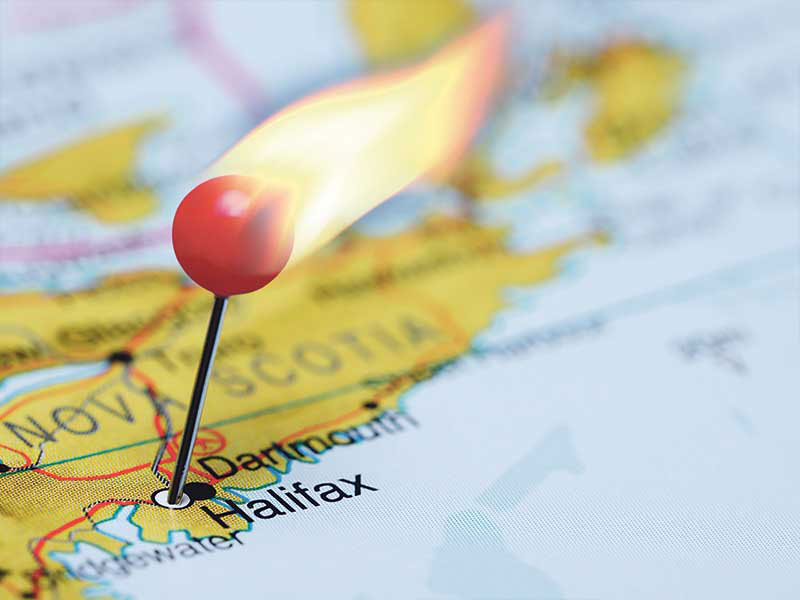
This article appears in the February 2022 issue of Investment Executive. Subscribe to the print edition, read the digital edition or read the articles online.
Halifax’s housing market is hot, and the heat wave includes a surge of buyers from across Canada, particularly those looking to exit ultra-expensive markets such as Vancouver and Toronto.
The attraction is, in part, financial. In December 2021, the average house price in Halifax was $490,127, up from $400,965 the year before. For many first-time buyers, that ticket price may be out of reach. For people selling their home in another province, however, the low Halifax price often means they can renovate and still have money left over, noted Jules Chamberlain, a real estate agent with Red Door Realty in Halifax.
Lifestyle is another draw. Quite frankly, Nova Scotia is a great place to live. We’re big enough to have a symphony and small enough to bring new neighbours a welcome gift. Chamberlain said that many out-of-province buyers have roots in our province or the region. Others are drawn here by the chance to slow down, breathe in and still find kale at the local grocery store.
The pandemic also pushed people east. When much of the country was locked down and barred in, Nova Scotians were eating in restaurants, going to concerts and visiting libraries. This wasn’t civil disobedience — indeed, it was the reverse. We adhered to the rules laid out by (now) three premiers and Dr. Robert Strang, Nova Scotia’s chief medical officer of health. (Strang’s forthright, respectful and amicable approach has him earmarked for sainthood.)
As a result, case numbers were markedly and remarkably low here: Nova Scotia, New Brunswick and Newfoundland and Labrador are the only provinces or territories with fewer than 4,000 cases per 100,000 people, and Nova Scotia has the fourth-lowest Covid-related fatality rate in the country. This made and continues to make Nova Scotia an attractive place to call home. (Omicron has increased case numbers, but hospitalizations remain manageable.)
And so, the come-from-aways have come, and continue to come, in droves — often without even seeing the house they purchased, we’re told. The influx has moderated (perhaps even dried up) in the wake of low supply. According to Re/Max Canada, there were only 1,605 new residential listings in the entire province last August, a 15.2% drop from the previous year.
Response to the wave of new buyers from other provinces has been met with, for the most part, open arms. There is some grumbling that Halifax is losing ground, literally, to people who have not contributed to the economy or the community, but this comes from a small minority at the most.
The greater concern is that the housing market is now out of reach for many, but out-of-province buyers aren’t being blamed. Rather, the issue is a lack of new homes being built and government inaction, particularly with respect to the bigger picture: lack of skilled trades, lower wages and commitment to housing equity.
Newcomers bring with them new cash, new ideas and new energy. Nova Scotia’s economy thanks those people, and our communities are rolling out the welcome mat. Statistics from the Nova Scotia Department of Finance indicate that most of the province’s increase in real GDP in 2019 was attributable to growth in four sectors. Real estate was one of them.
Now, as the pandemic wanes, house prices are at an all-time high and interest rates are poised to climb, the question is: “What will happen to Halifax’s hot housing market?”
Don’t expect the temperature to drop, Chamberlain said: “This isn’t a bubble. Prices will continue to climb. Demand will remain high.”
Advisor chargebacks are bad for the industry
The CSA is considering a ban on the practice